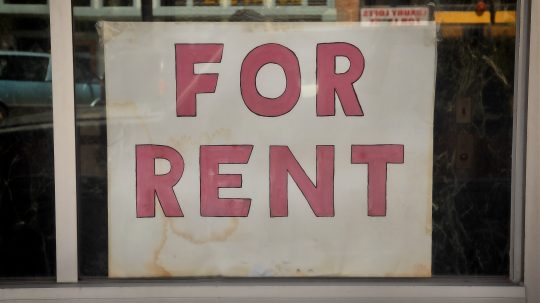New measures outlined by the government will ban private landlords from issuing ‘no fault’ evictions. The latest government statistics show that the number of tenants evicted by their landlords has more than tripled since this time last year. The homeless charity, Crisis has said ‘no fault’ evictions where landlords do not have to establish a fault on the part of the person renting their property, have risen by 52% in the last three months.
Under a Section 21 ‘no fault’ notice in the Housing Act 1988, landlords can evict renters with two months notice after a fixed term tenancy ends or during a tenancy with no fixed end date. Following a consultation on the private rented sector in 2018, the government said ‘no fault’ evictions left tenants feeling “particularly vulnerable”.
The Department of Levelling Up, Housing and Communities committed to end ‘no fault’ evictions in England in its white paper published in June. It said the measure aimed to give tenants “piece of mind” and “ease the financial burden” of moving costs and emergency repairs when faced with eviction. It plans to introduce these measures through a Renters Reform Bill.
The plans were welcomed by housing charities and renters’ alliances. Sue James, chair of the Renters Reform Coalition described ending ‘no fault’ evictions as an “important step towards a secure future for renters”.
Polly Neate, chief executive of Shelter, called the Bill a “gamechanger” for private renters. She said that ending ‘no fault’ evictions would “level the playing field”, adding: “For the first time in a long time, tenants will be able to stand up to bad behaviour instead of living in fear.”
Kiran Ramchandani, director of policy and external affairs at Crisis highlighted the “desperate situation” facing renters evicted during the current cost of living crisis. He said the charity has been supporting renters who are having to pay for new deposits when they are “struggling to keep the lights on”.
Section 21 is part of what makes it so easy for landlords to evict us.
Last week, the government confirmed it will end Section 21 no-fault evictions through a Renters Reform Bill.
Here's our statement about this massive win for the housing movement and what comes next. pic.twitter.com/do4ccHm0OR
— London Renters Union (@LDNRentersUnion) June 24, 2022
Introducing the proposals, Michael Gove, secretary for levelling up and housing, said: “For too long many private renters have been at the mercy of unscrupulous landlords who fail to repair homes and let families live in damp, unsafe and cold properties, with the threat of unfair ‘no fault’ evictions orders hanging over them.”
“Our New Deal for renters will help to end this injustice by improving the rights and conditions for millions of renters as we level up across the country and deliver on the people’s priorities.”
Eviction expensive for renters
Eviction can cost renters hundreds of pounds, preventing them from saving for a deposit to buy their own home, the government said in its white paper.
Mike Dicks and his housemate were evicted from their home of two years in Brighton because his landlord said he wanted to give his property to his son. Mike was served a Section 21 notice in June and given until August to move out.
“I’m lucky enough for it not to have caused dramatic problems. But your home is still taken away from you for no real reason,” he said.
Mike, who moved into the house to shield while undergoing chemotherapy during the pandemic, had already paid his rent to his landlord in advance, covering six months until August.
After the eviction notice, he found somewhere new to live last month and was promised by his letting agency that he would get the rent he had already paid back. Mike signed a new contract and moved last month. However, his landlord refused to pay the rent back to him.
“‘I’m paying rent on an apartment I thought I handed the keys over for,” he said, adding: “It feels grossly unfair for him [the landlord] to take the money”.
“We were in this trap where we felt completely hopeless and powerless. Having rented two or three times in Brighton I’m very aware that you’re reliant on references from the tenancy agent and the landlord.”
Mike said that paying for the rent while also having to spend £1,000 on moving costs meant he had had to cancel two planned trips to see his son and new grandchild in Spain.
“It has genuinely cost us money we wouldn’t have had to pay had he [the landlord] not evicted us,” he said.
Cornish hamlet faces 12 evictions
The tenants of 12 houses in a Cornish hamlet could be facing ‘no fault’ evictions after the estate they live on was put on the market earlier this month.
Tenants of the Trevalga estate said they received a letter notifying them of the sale in June and have been fighting it ever since. Serena Partick, who lives on the estate, said the news was “terrifying” for the community, where some families have been living for three generations.
Serena’s sister, who is a full-time carer for her son, lives in one of the properties that could be repossessed. “She’ll never be able to afford her own home,” said Serena. “She is distraught.”
Serena said that many residents cannot afford to live elsewhere in the local area because of high rent costs and a shortage of housing from Airbnbs, holiday lets and second homes.

Trevalga residents protest. Credit: @Battle4Trevalga
“People describe Trevalga as a sanctuary. It’s a medieval parish,” she said. “I don’t even know how to process the thought of losing it. I’m sadder and angrier than I can possibly say.”
She lamented short-hold tenancies, which she said “tear communities apart” by enabling tenants to be evicted at short notice due to no fault of their own.
“If you do not have housing security, you do not build a community. We should have much better protections for tenants,” she said.
A spokesman for Marlborough College, to which the estate is in trust, said: “The sale is being handled by the trustees and is nothing to do with the college. I can only refer you to Savills, who are liaising with trustees.”
A spokesperson for the selling agents Savills said: “We can confirm Savills is offering the Trevalga estate for sale as a whole on behalf of the trustees.”
“The sale is subject to all existing tenancies with the security of tenants remaining unchanged.”
Concerns over landlord abuse
Under the proposed rules, the government plans to strengthen landlords’ grounds for repossessing a property under Section 8 of the Housing Act. This means landlords can evict tenants on certain grounds, such as anti-social behaviour or falling behind on rent, or simply if a landlord wants to move into the property themselves.
Charities have raised concerns that landlords could abuse the system through these strengthened protections.
The Renters Reform Coalition said that in Scotland, which has recently enacted a similar model to what the government has proposed for England, tenants have reported that their landlords abused the measures to evict them for sale because evidence required can be “easily manipulated”.
It called on the government to ensure renters cannot be evicted “under false pretences”, adding that landlords must be required to provide a mandatory “unequivocal evidence of their legitimate plans for the property” before they evict a tenant.
Thousands of renters are being forced from their homes & many can't afford to find a new one. The new PM must introduce the Renters Reform Bill to protect renters from no-fault evictions & unfreeze housing benefit so people can afford to find new homes. https://t.co/rPRugjP7DI
— Crisis (@crisis_uk) August 11, 2022
Still, housing groups are hoping the measures move forward rapidly in the new parliament. Ramchandani from Crisis called on the new Prime Minister to commit to introducing the Renters Reform Bill.
“Only this action will ensure we don’t see thousands more pushed into homelessness in the difficult months to come,” he added.





